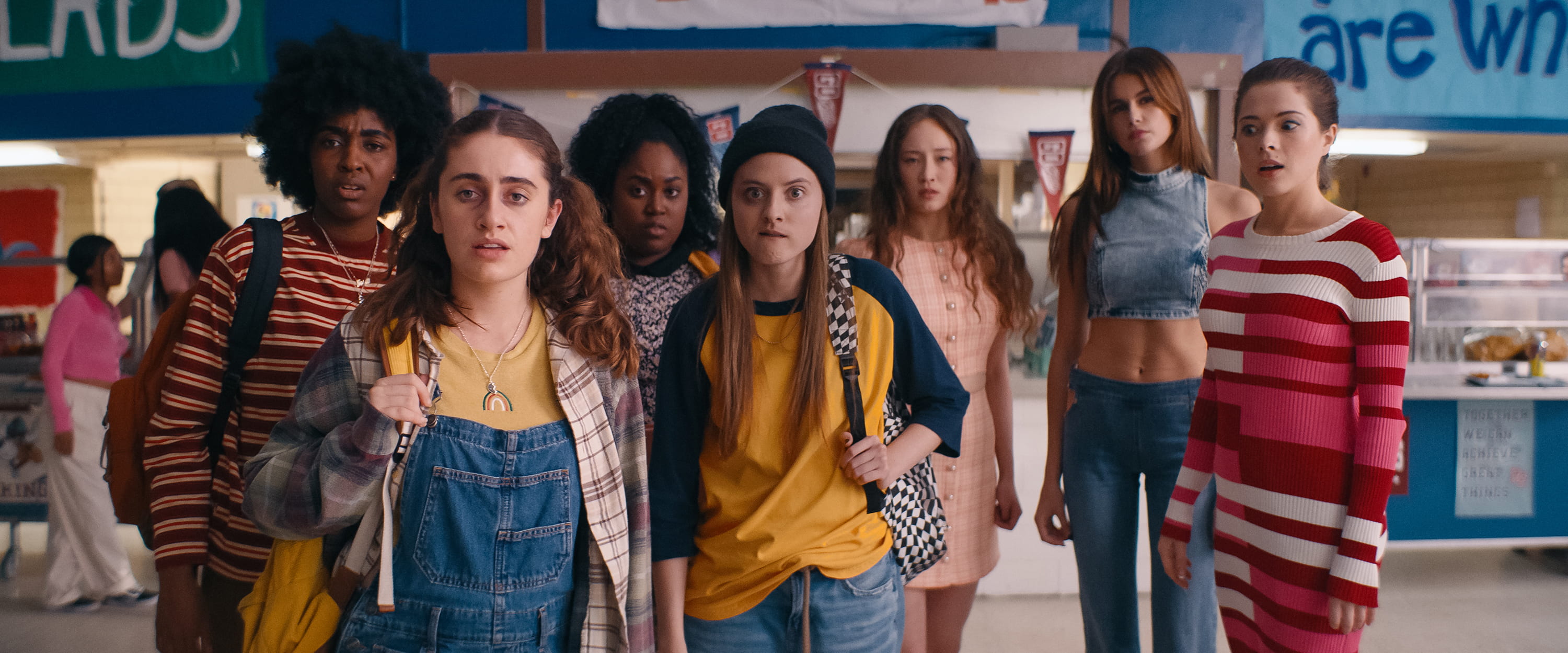
From left, Ayo Edebiri, Rachel Sennott, Zamani Wilder, Summer Joy Campbell, Havana Rose Liu, Kaia Gerber and Virginia Tucker in “Bottoms.” (Orion Pictures/TNS)
Leaders of Ohio State’s Female Gaze Screening Club said the film industry has a newly approaching hotspot: women.
With the recent releases of “Barbie” and “Bottoms” — not to mention upcoming releases like “Lee,” a biopic about famous photographer Elizabeth “Lee” Miller — female-directed and -led movies spanning various genres are being both admired and criticized, Mary Polemeni-McGovern, a third-year in astronomy and astrophysics and the club’s vice president, said.
Beyond the recent success of such films, both Polemeni-McGovern and Kate Scharner, a third-year in speech and hearing science and the club’s president, agree “Bottoms” has created an inclusive cinematic experience. Directed by Emma Seligman, Scharner said “Bottoms” has generated buzz regarding its progressive themes of women empowerment and the LGBTQ+ community.
“We are getting more of a say from all sorts of people rather than just one group,” Scharner said. “The more diversity, the better.”
Even so, both Scharner and Polemeni-McGovern said having a diverse climate behind the camera is just as important as having one in the front. Hiring crew members from different backgrounds and encouraging equitable standards for crew members is important to ensuring equal representation, Polemeni-McGovern said.
“It is so exciting to see queer voices celebrated and voiced,” Polemeni-McGovern said. “You have to have a director that knows the experiences intimately. Those shared experiences are important to a community, so it’s irresponsible to put anyone who is not aligned with those experiences at the forefront of it.”
Despite the billion-dollar success of “Barbie,” Polemeni-McGovern and Scharner said they feel worried about the authenticity of future female-directed and -led films. They said it’s possible that corporations will begin feigning progressive mindsets to produce “female-empowerment” movies simply to make money rather than create genuine passion projects.
“The film industry is a business,” Scharner said. “Money isn’t everything, but it is in the film industry, and so I think that producers are going to want to begin making more female-led films.”
Polemeni-McGovern said female representation is crucial, but so is making sure this representation is not stereotypical or monolithic.
“The most important part of representation is to let the people [and characters] representing be flawed and not be this edifice of what we want a woman or person of color to be,” Polemeni-McGovern said. “Letting representation trickle through all different genres is important.”
Regardless, Scharner and Polemeni-McGovern said they feel female representation is important for all Ohio State students to see.
“Womanhood is a shared experience,” Polemeni-McGovern said.
Though “Lee” is yet another highly anticipated female-directed and -led film, Scharner said it is also venturing into a traditionally male-dominated genre, with its focus surrounding Miller’s work during World War II.
“A lot of history about women is left out of the picture,” Scharner said. “So, seeing these biopics [is] awesome to see. There is so much opportunity in every genre.”
While filmmakers have made great strides this year with respect to boosting female representation on and off screen, Scharner said there is still work to be done.
“While I think it’s amazing, it’s not perfect,” Scharner said. “There is still a lot of progress that needs to be done such as more stories about women of color and queer films.”


